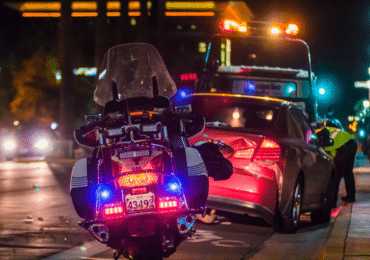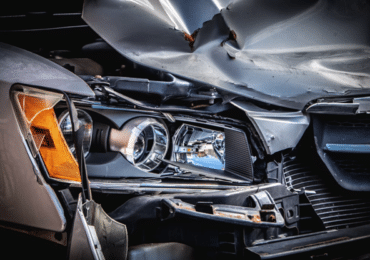Accidents happen, and when they do, the aftermath can be overwhelming. One of the most common situations you might find yourself in after a car accident is needing your vehicle towed. In this blog post, we’ll guide you through the steps you should take if your car requires towing after an accident. From ensuring your safety to dealing with insurance, we’ve got you covered.

Prioritize Safety First
Ensuring safety remains the utmost concern in the wake of an accident. If the collision is minor and it is safe to do so, make an effort to move your vehicle away from the path of oncoming traffic. Activate your hazard lights immediately to signal to other motorists that something is amiss. Deploying warning triangles or cones adds an extra layer of safety by increasing visibility, especially in low-light conditions. Nevertheless, if the accident is more severe, it’s strongly advisable to stay within your vehicle until professional assistance arrives. Remaining inside your car can shield you from additional hazards and reduce the risk of further injuries.
Check for Injuries
Beyond securing the accident scene, the next critical step is to assess your well-being and that of any passengers in your vehicle. Examine yourself and others for injuries, both obvious and less apparent. It’s crucial to note that injuries may not always manifest immediately; some can take time to become apparent. Erring on the side of caution by promptly calling 911 if anyone appears injured is the safest course of action. This ensures that medical assistance reaches those who need it promptly.
Call the Police
Contacting the police is generally a prudent course of action, regardless of the accident’s severity. A police presence can lend a sense of order to the chaotic aftermath of an accident. Officers can help with documenting the incident, gathering statements from involved parties, and providing you with an official accident report. This report can be invaluable when it comes to filing insurance claims and ensuring that the facts surrounding the accident are accurately recorded.
Gather Information
To facilitate the claims process later on, gathering information about the accident is crucial. Exchange essential details with the other party involved, including names, phone numbers, insurance information, and license plate numbers. In today’s digital age, using your smartphone to capture photographs of the accident scene, vehicle damage, and the positioning of vehicles can be immensely helpful. These visual records can serve as compelling evidence when recounting the incident to insurance companies and legal authorities.
Contact a Towing Service
In the unfortunate scenario that your vehicle is rendered undrivable due to the accident, arranging for a tow truck is the next logical step. It’s worth noting that many insurance policies include roadside assistance services that encompass towing expenses. Getting in touch with your insurance provider can help clarify whether this service is available to you. In cases where it is not covered, you may need to independently seek out a professional towing service in your vicinity. When contacting a towing company, inquire about the estimated cost of the service and their expected time of arrival to avoid any surprises.
Secure Your Belongings
During the wait for the tow truck, take the opportunity to collect your personal belongings from the vehicle. This includes crucial documents such as your driver’s license, registration, and insurance information. Valuables, like laptops, purses, and any items of sentimental value, should also be retrieved. Furthermore, consider items you might need immediately, such as medications or your phone charger. It’s easy to overlook these essentials in the chaos of the moment, so a thorough sweep of your vehicle is advisable.
Notify Your Insurance Company
Once safety and immediate concerns are addressed, it’s imperative to reach out to your insurance company and report the accident. This initial contact initiates the claims process and sets in motion the procedures for assessing and resolving the damages incurred. When communicating with your insurer, provide them with all the information you’ve gathered, including the accident report from the police, the photographs of the scene, and the details of the towing service you’ve engaged. This comprehensive information aids your insurance company in expediting the claims process.
Understand Your Insurance Coverage
To navigate the claims process effectively, it is essential to delve into the specifics of your insurance policy. Understanding what your policy covers in terms of towing, repairs, and potential rental vehicles is critical. Insurance policies can vary widely, and some may have specific limits or preferred providers for towing services. In some cases, you may even be responsible for the towing costs upfront. By being well-versed in your policy, you can make informed decisions and ensure that you are maximizing the benefits available to you.
Choose a Repair Shop
If your vehicle requires repairs, you may find that your insurance company offers a list of approved repair shops. However, it is typically within your rights to select a repair facility of your choice. In making this decision, conducting research is key. Seek out reputable repair shops in your area and obtain quotes for the necessary repairs. By doing so, you not only ensure that your vehicle is in capable hands but also that you are receiving a fair estimate for the work needed.
Keep Detailed Records
Throughout the entire process, diligent record-keeping is essential. Maintain comprehensive records of all interactions and communications with the police, your insurance company, the towing service, and the repair shop. Detailed records serve as a safeguard, making the claims process smoother and providing a solid foundation for your case in the event of disputes. A well-documented trail of information helps ensure that you receive the support and compensation you are entitled to.

In conclusion, finding yourself in a car accident is undoubtedly a distressing experience. However, knowing precisely what steps to take if your car requires towing can make the situation far more manageable. Your safety remains paramount, and meticulous documentation and communication are your most powerful allies in this process. By following these comprehensive steps, you can navigate this challenging situation with confidence and emerge on the other side with the support you need to get back on the road safely. Stay vigilant and stay safe out there!

